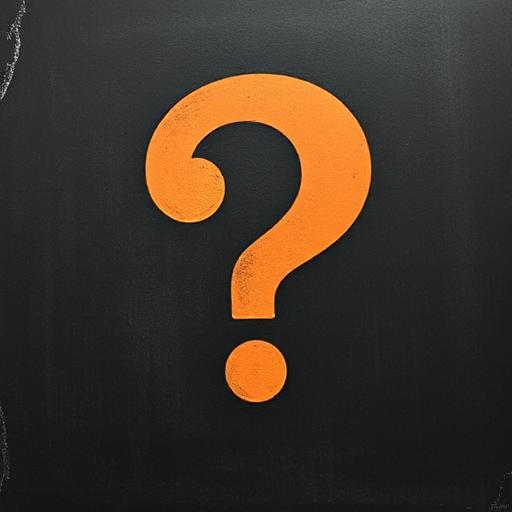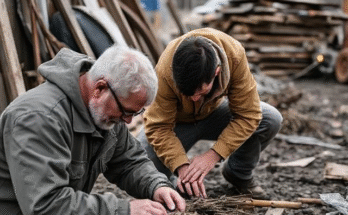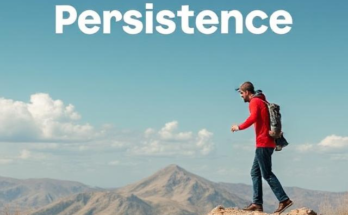Introduction
We all know how that feels — someone asks us a question, and we’ve got no clue. Our hearts pound, our hands become clammy, and our minds are desperately searching for something – anything to say, afraid of looking incompetent:
A fear that is ingrained in us, psychologically speaking. While it seems the most human reaction in others, we all want to come off as wise and competent, but precipice can hold you back real growth and education.
As we learn our ego is both a motivation and an obstacle. On the other hand, a good ego drives us to grow in our knowledge and capabilities. On the other hand, an overly large ego can result in us being reluctant to admit when we don’t know something.
Cognitive Biases That Hinder Learning
There are several biases that dissuade us from accepting uncertainty and uttering the words “I don’t know.” Among those is the Dunning-Kruger effect wherein individuals lacking in knowledge rate their own intelligence high and so do not have awareness of ignorance on their own part.
That illusion of proficiency prevents open-minded learning and triggers illusory confidence. Confirmation bias leads people to look for data that reinforces preexisting beliefs while discarding inconsistent facts.
This makes it hard to admit knowledge gaps because people cling to what they do know rather than not knowing.
The second huge bias is the overconfidence effect where people believe that they are more accurate or wiser than they really are. This leads to bad decision making because people make decisions based on incorrect information rather than questioning themselves.
And ambiguity aversion makes people uncomfortable with uncertainty so they’d prefer to provide certain but maybe wrong answers rather than say that they don’t know.
Overcoming these bias requires self awareness, intellectual humility and openness to doubt your own knowledge. In saying “I don’t know”, we open the door to greater learning, critical thinking and real intellectual growth.

The benefits of saying I don’t know
One of the most wonderful things about “I don’t know” is that it fosters intellectual humility. People who are comfortable saying they don’t know demonstrate openness to learning rather than pretending to be all-knowing.
This attitude creates curiosity, which leads people to ask questions, look for other perspectives, and talk about things in context.
People who will not admit that they do not know tend to be caught in confirmation bias, where they will only entertain information that supports their prevailing perspective. When people freely express doubt, they expose themselves to learning and self-development.
Besides, saying “I don’t know” enhances judgment. Most judgments go wrong because of overconfidence, when someone feels that he or she knows enough to make the judgment, whereas the truth is that they don’t.
If we are saying that we don’t know, we give ourselves the opportunity to have time to search for facts, seek advice from people who are more knowledgeable, and get other people’s perspectives before making a judgment. This approach is the most effective during the workplace, as the right decisions could have a lot of influence.
The leaders welcome uncertainty and before acting, research and learn to get the best possible results. They create flexible and learning-oriented cultures within teams.
Another significant benefit of admitting “I don’t know” is that it builds stronger relationships and trust. When individuals fabricate answers to things they don’t know, they are likely to mislead others and undermine credibility.
Contrarily, honesty and openness create a culture of authenticity, where one feels free to question and debate ideas openly. This is especially important in educational institutions, working places where there needs to be respect and communication in an open manner in order to enhance development and innovation.

The Impact of “I Don’t Know” on Personal Growth
Accepting the words “I don’t know” is a beautiful source of fuel for change within one’s self in that it engenders intellectual humility, self-knowledge, and lifelong learning.
Most do not want to admit that they do not know because they consider it an admission of weakness or ineptitude. The admission of the knowledge edge is but the very beginning of acquiring greater wisdom.
When a person openly admits that they do not know, they open themselves up to hearing new information, ideas, and perspectives so that they can add to their knowledge. This type of mind-set promotes questioning and questioning, leading to healthy personal and professional development.
It also helps them become good problem solvers and decision makers. Instead of assuming or making judgments on imperfect facts, uncertainty followers seek perfect information and make more informed decisions.
This avoids overconfidence and poor judgment, resulting in wiser, more reflective decisions. Second, uncertainty also provides room for resilience, where people come to realize that in life, one learns.
They who can quickly say three little words “I don’t know” have a growth mindset to innovate, adjust, and prosper in a world that changes constantly. Finally, embracing uncertainty is not weakness but deep strength that propels
Common Misconceptions About Saying ‘I Don’t Know’
Most people are reluctant to say “I don’t know” because of common myths that give the impression it is a sign of weakness. One of the biggest myths is that admitting not knowing is an indication of incompetence. It is really an indication of honesty, an understanding of one’s limitations, and a willingness to learn.
People who courageously say “I don’t know” are more sensible in the long run because they continue to search for the answers and not pretend to already know.
The second myth is that “I don’t say ‘I don’t know’ because it makes me sound less confident.” But confidence is in openness to learning and not in fantasizing that one knows everything.
In fact, leaders and specialists who write down their cards and communicate in terms of saying “I don’t know” really end up becoming respected and trusted even more since they show humility and an aptitude for precision.
And people also believe that if they admit they do not know something, then they are not prepared or they are dumb. Asking questions and questioning, however, is actually a gauge of intellectual adaptability and wisdom.

Summary
Accepting uncertainty and feeling comfortable saying “I don’t know” is a strengthening mindset that promotes career and individual growth.
Seeing uncertainty as, not weakness but our own finiteness allows us to embark on challenges as learners, openly curious and unafraid, knowing we must ask questions before answers can exist. Admitting what we do not know leads us to avenues of new learning, is a healthy thing to say to another, and helps us navigate in a transformed world.
By overcoming fear of appearing un incompetent and looking up to humility and confidence at the same time, we can turn “I don’t know” into a growth driver. Instead of closing the dialogue door, it can be an innovation driver, more questioning, and lifelong learning.
In the end, the ones who profit from doubt do not only contribute their own know-how but also others’.



